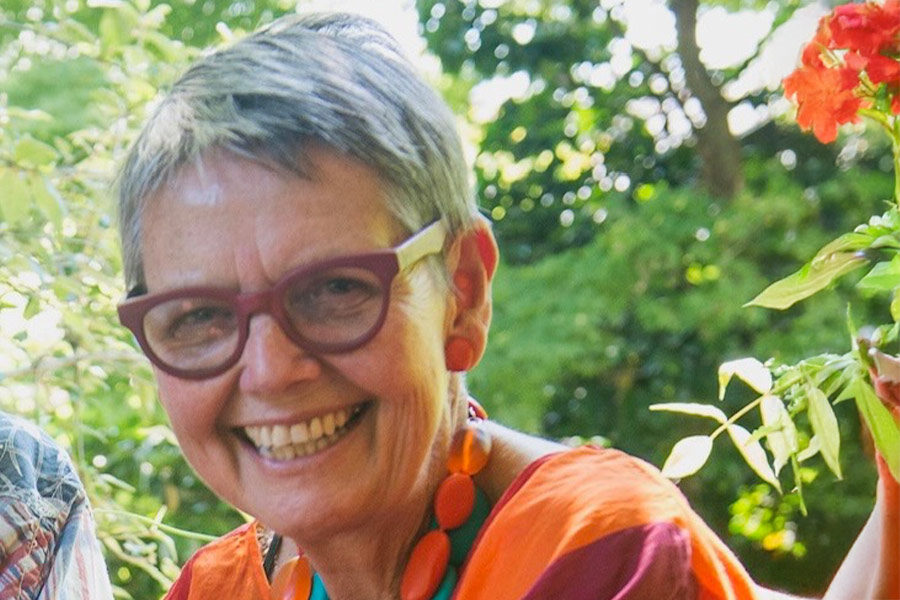Anne Cunningham was born in 1941 when her father was still fighting in World War II. One of four children, she was educated at Toorak College in Mount Eliza and attended Melbourne University whilst living on campus at Janet Clark Hall. A gap year between school and university was largely spent accompanying her parents on a round-the-world trip. It revealed to her not only the wonders of travel but also those of the built environment. Both became lifetime passions.
Graduating in 1966 she spent the next two or three years working for Yuncken Freeman Architects, Don Hendry Fulton and her own practice. She married Ian in 1968. After their first child was born, Anne and Ian spent five years abroad, living in KL, the USA and the UK while he studied and she found architectural interests. Returning to Australia with two young children, she reopened her private practice and became involved in the Institute’s Architects in Schools program which she loved. Having had a third child and with a growing practice, Anne looked around for a partner. She found Ann Keddie, also newly returned from overseas and with two small children.
From its beginning in 1981, as the first practice in Australia whose only directors were women, ‘the Ann(e)s’ were like minded in their ambition to make design a fundamental component of building, not just an optional extra and to practice truly participatory design, particularly when working with those who have little opportunity for decision-making of the kind found in architectural projects – occupants of social housing, the elderly and those with a disability.
As a happy coincidence, the Victorian office of Housing, recognising the ongoing need for public housing, changed from the era of wholesale demolition of the so-called inner-city slums, opting for less identifiable housing, rather than replacing them with high-rise blocks of flats. Cunningham & Keddie were part of a group of architects employed to restore what was left of the former street patterns and to re-energising the existing older low-rise building stock. They loved the range of housing they worked on from historic mansions to blocks of units. Their work in public housing led to multiunit housing, landscape and urban design projects for other areas of government and private clients.
At this time Anne contributed to the RAIA at both state and national levels, chairing the National Education Committee and serving on National Council, travelling in those roles to the USSR, NZ and China. She also served on the Victorian Building Appeals Board. She lectured at both our RMIT and the University of Melbourne and was one of the founding members of Women in Architecture, established to support other women juggling family life with professional endeavours at a time when childcare was in short supply.
In 1999, after a trip around Australia with Ian, the lure of the natural environment and newly purchased land in central Victoria led to a change in direction and to the creation of an autonomous off-grid house and the restoration of indigenous planting on the property. Anne became very involved in local Landcare groups with many weekends spent planning and planting. She also opened a new architectural practice with Claudine Top, partnered with Stephen Crafti who had established Architours to showcase local examples of good design, a natural progression from her time lecturing and mentoring student architects.
A gregarious person, Anne was great fun to work with. She liked cooperative endeavours and thrived on new ideas, new places and new adventures. She had always been an outdoors enthusiast- windsurfing skiing and camping to name a few of her activities. Her cheerful demeanour remained intact and she enjoyed the company of others as her health declined. Anne Cunningham’s contribution to Melbourne’s architectural culture will always be remembered. She will be sadly missed by her legion of friends and acquaintances.
Anne’s family invites you to RSVP to her memorial hosted on Thursday, 16 October.
Obituary written by Ann Keddie
